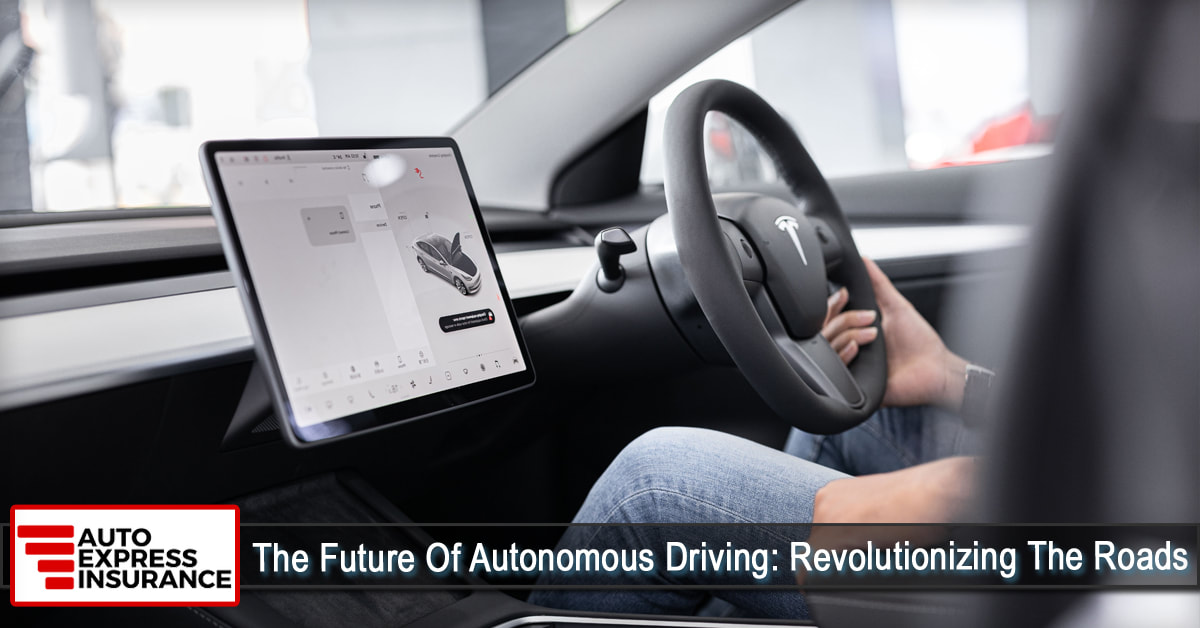|
The automotive industry is undergoing a monumental shift with the emergence of autonomous driving technology. Self-driving cars, once a mere concept from science fiction, are now becoming a reality. As this technology advances, it has the potential to revolutionize our roads, bringing numerous benefits to society. However, it also raises important considerations, particularly in the realm of car insurance. In this blog, we will explore the future of autonomous driving and its implications for auto insurance in Houston, TX. Enhanced Safety:
One of the primary promises of autonomous driving is improved safety on the roads. Self-driving cars are equipped with advanced sensors, cameras, and artificial intelligence systems that can perceive their surroundings and make split-second decisions. This technology has the potential to significantly reduce human errors, which are responsible for the majority of accidents today. As a result, it is anticipated that autonomous driving will lead to fewer collisions and injuries, positively impacting auto insurance rates in Houston, TX. Shifting Liability: With traditional car insurance, the focus is primarily on human drivers and their actions. However, as autonomous vehicles become more prevalent, the responsibility for accidents and liability may shift. Determining fault in accidents involving autonomous vehicles can be complex, as it may involve factors such as software malfunctions, sensor failures, or human errors in monitoring the self-driving system. Insurance policies will need to adapt to address these new scenarios and allocate liability between the vehicle owner, the manufacturer, and other parties involved. Evolving Insurance Models: As autonomous driving technology matures, traditional auto insurance models may undergo significant changes. Insurers may shift from providing coverage for individual drivers to offering policies that focus more on the technology and the vehicle itself. For example, product liability insurance could become more relevant as the responsibility for accidents shifts from the driver to the vehicle manufacturer or technology provider. Additionally, usage-based insurance models, where premiums are based on the distance driven or the autonomous mode usage, may emerge to reflect the reduced risk associated with self-driving cars. Data and Privacy Concerns: Autonomous vehicles generate a vast amount of data, including sensor readings, location information, and vehicle diagnostics. This data can be invaluable for insurance companies in assessing risks and determining premiums. However, it also raises concerns about data privacy and security. As auto insurance evolves in Houston, TX, it will be crucial to strike a balance between utilizing data to accurately price policies and ensuring the protection of individuals' privacy. Regulatory Framework: The widespread adoption of autonomous driving technology requires a robust regulatory framework to address legal and insurance-related challenges. Governments and insurance authorities in Houston, TX, will play a pivotal role in establishing guidelines and regulations that govern autonomous vehicles' insurance requirements, liability allocation, and data privacy. Collaborative efforts between industry stakeholders, policymakers, and insurance professionals will be essential in shaping the future of autonomous driving insurance. Conclusion: The future of autonomous driving holds great promise in terms of enhanced safety, reduced accidents, and improved efficiency on the roads. However, it also brings about significant changes and considerations in the realm of car insurance. As the technology evolves, insurers in Houston, TX, will need to adapt their policies to accommodate the unique challenges posed by autonomous vehicles, such as shifting liability and the use of data. Collaboration between the automotive industry, insurance providers, and regulatory bodies will be crucial to ensure a smooth transition and establish a comprehensive framework that supports the safe and responsible integration of autonomous driving technology. Note: The information provided in this blog is for informational purposes only and does not constitute professional advice. For personalized advice regarding auto insurance and autonomous driving in Houston, TX, consult with a qualified insurance agent or professional. At Auto Express Insurance, we put our clients first by offering them policies that they can afford. Having insurance is a necessity nowadays and we're here to help you out. Learn more about our products and services by calling our agency at (832) 232-4655. You can also request a free quote by CLICKING HERE.
0 Comments
Leave a Reply. |
Contact Us(832) 232-4655 Archives
June 2024
Categories
All
|
Navigation |
Social MediaShare This Page |
Contact Us
|


 RSS Feed
RSS Feed